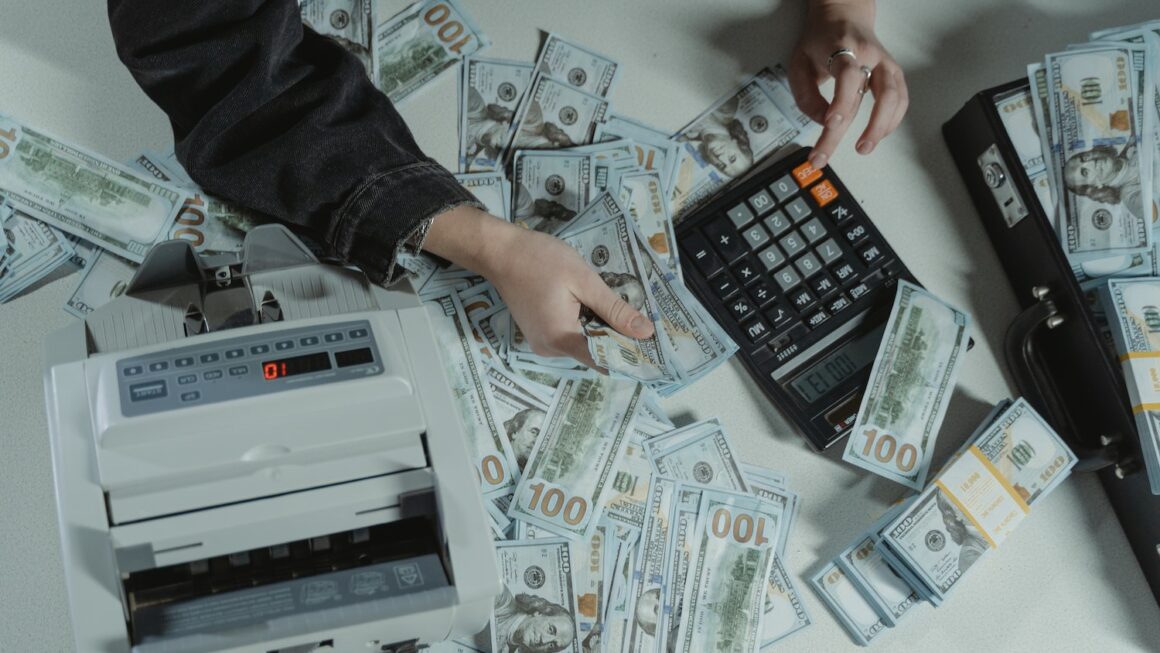Coin counters are useful devices for anyone who frequently deals with large amounts of coins. They are designed to help you count coins quickly and accurately, saving you time and effort.
Here are some things you should be aware of if you are thinking about purchasing a coin counter:
Types of coin counters: There are two main types of coin counters – manual and automatic. Manual coin counters require you to manually insert each coin into the machine, whereas automatic coin counters can count large amounts of coins at once, often sorting them into separate bins for different denominations.
Accuracy: Accuracy is a crucial factor to consider when buying a coin counter. Some models may have a higher accuracy rate than others, and it’s essential to choose one that is accurate enough for your needs.
Speed: Coin counters can vary in their counting speed, with some models able to count hundreds of coins per minute. If you frequently count large amounts of coins, a faster coin counter might be a better choice for you.
Capacity: Coin counters can also differ in their capacity, meaning how many coins they can hold before needing to be emptied. If you have a high volume of coins to count, you’ll want to look for a model with a higher capacity.
Durability: Consider the durability of the coin counter. If you need to transport it or use it in a harsh environment, you’ll want to choose a sturdy and durable model.
Features: Some coin counters come with additional features such as the ability to sort coins by denomination, or a feature that detects counterfeit coins. Consider what features are important to you and choose a model that includes those.
Cost: Coin counters can vary in price, with some models costing hundreds of dollars. Consider your budget and choose a coin counter that fits within it while still meeting your needs.
Overall, when choosing a coin counter, you’ll want to consider accuracy, speed, capacity, durability, features, and cost. With these factors in mind, you’ll be able to choose a coin counter that will make your coin-counting tasks easier and more efficient.
Importance of coin counters in the bank?
Coin counters are an essential tool for banks to efficiently and accurately count large amounts of coins. Coins are still widely used as a form of currency in many countries, and banks must process large volumes of coins daily. Manual counting of coins can be time-consuming and prone to errors, which can have significant consequences for banks and their customers. In this essay, we will explore the importance of coin counters in the bank.
One of the main benefits of using coin counters in banks is their ability to accurately count large volumes of coins quickly. Coin counters are designed to sort and count coins at high speeds, enabling banks to process large amounts of coins in a short period. This saves time and reduces the workload for bank employees who would otherwise have to count the coins manually.
Another advantage of coin counters is their precision. Coin counters use sensors and algorithms to identify and sort coins based on their denomination, size, and weight. This ensures that the coins are accurately counted, and the total value of the coins is calculated correctly. This is particularly important for banks that deal with large amounts of coins as even small errors in counting can result in significant discrepancies in the total amount.
Coin counters also reduce the risk of errors that can occur when coins are counted manually. Manual counting is prone to human error, especially when dealing with large amounts of coins. Mistakes can occur due to tiredness, distractions, or simply miscounting the coins. Coin counters eliminate these risks by automating the counting process and reducing the need for manual intervention.
Using coin counters also increases security in banks. Coins are typically stored in vaults or safes, and the more they are handled, the greater the risk of theft or loss. Coin counters reduce the need for employees to handle the coins, minimizing the risk of loss or theft. Furthermore, coin counters often have built-in security features, such as password protection and access controls, which further enhance security in banks.
In addition to improving efficiency and security, using coin counters in banks also enhances customer service. Customers who deposit coins into their accounts want their transactions to be processed quickly and accurately. Coin counters enable banks to process coin deposits faster, reducing wait times for customers and improving their overall experience. This can lead to increased customer satisfaction and loyalty, which are critical for banks in today’s competitive financial industry.
Using coin counters can also help banks save money in the long run. While coin counters can be expensive to purchase initially, they can ultimately save banks money by reducing labor costs associated with manual counting, improving efficiency, and reducing the risk of errors and theft. Additionally, coin counters often come with warranties and maintenance agreements that can further reduce costs associated with repairs and maintenance.
Conclusion
Coin Counters are an essential tool for banks to efficiently and accurately count large volumes of coins. They improve efficiency, enhance security, improve customer service, and save money in the long run. As such, they are an investment that can provide significant benefits to banks and their customers.




